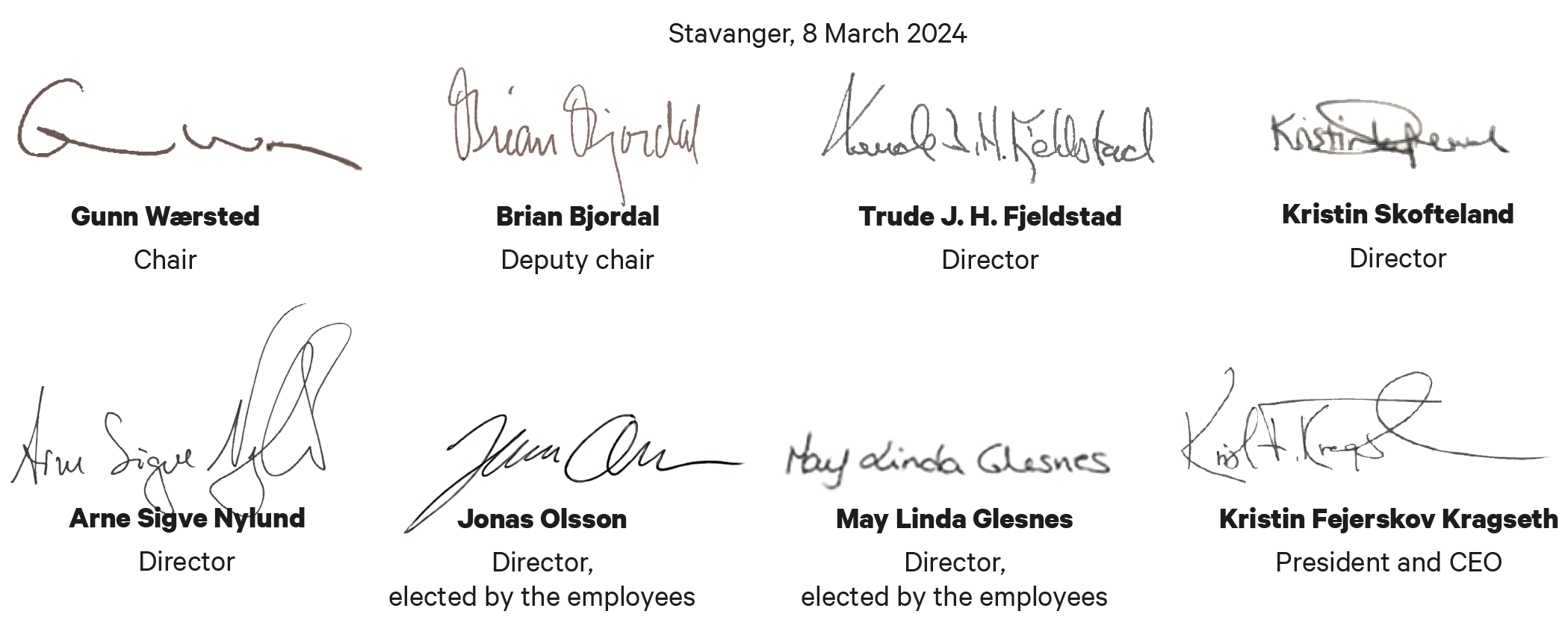At year-end, the SDFI portfolio consisted of 175 ownership interests in production licences; three fewer than at the beginning of the year. In January 2024, the Ministry of Petroleum and Energy completed its awards in pre-defined areas, where an additional 20 production licenses were awarded with SDFI participation. As the largest partner on the Norwegian shelf, which provides a unique overview, Petoro is well-positioned to identify opportunities and contribute to lessons learned across the portfolio. The company therefore works actively to use its position to create value for its owner.
The portfolio consists of 43 producing fields. The Johan Castberg, Kristin Sør phase 1, Ormen Lange phase 3 and Troll Vest electrification projects, as well as Oseberg increased gas capacity and partial electrification are under development.
Production from mature oil fields continues to dominate liquids production from the SDFI portfolio, despite the fact that Johan Sverdrup accounted for 34 per cent of production in 2023. The Troll, Snorre, Oseberg, Åsgard, Heidrun, Gullfaks and Grane fields accounted for 43 per cent of total liquids production in 2023. In 2023, gas accounted for about two-thirds of overall production. Approximately 70 per cent of the gas production came from Troll, Ormen Lange and Oseberg.
Petoro's strategy describes the company's goal-oriented efforts to generate the greatest possible values from the SDFI portfolio. The strategy has three priorities: (1) Mature fields, where the goal is to create more investment opportunities, (2) Area development, where the goal is to find solutions across the portfolio, (3) People and nature, where the goal is to take care of our surroundings.
Petoro works to reinforce value creation opportunities with emphasis on long-term business development through focused follow-up, supported by in-depth professional commitment.
Petoro was a participant in 11 exploration wells in 2023, which resulted in 7 discoveries, but 5 of these discoveries are characterised as technical/non-commercial. Obelix Upflank (PL1128) in the area around Aasta Hansteen and Røver Sør (PL923) in the area around Troll are both considered to be commercial discoveries.
The portfolio's estimated remaining reserves totalled 4,475 million boe at the end of the year, down by 304 million boe compared with the end of 2022. Reserve growth came to 59 million boe, and this mainly comes from the Snorre and Visund fields as a result of somewhat extended economic tail-end production. With a production of 363 million boe, this yielded a reserve replacement rate of 16 per cent, compared with 49 per cent in 2022 and 80 per cent in 2021.
Additional information about the company's activities in 2023 can be found in Chapter 3, Activities and results from the year.
